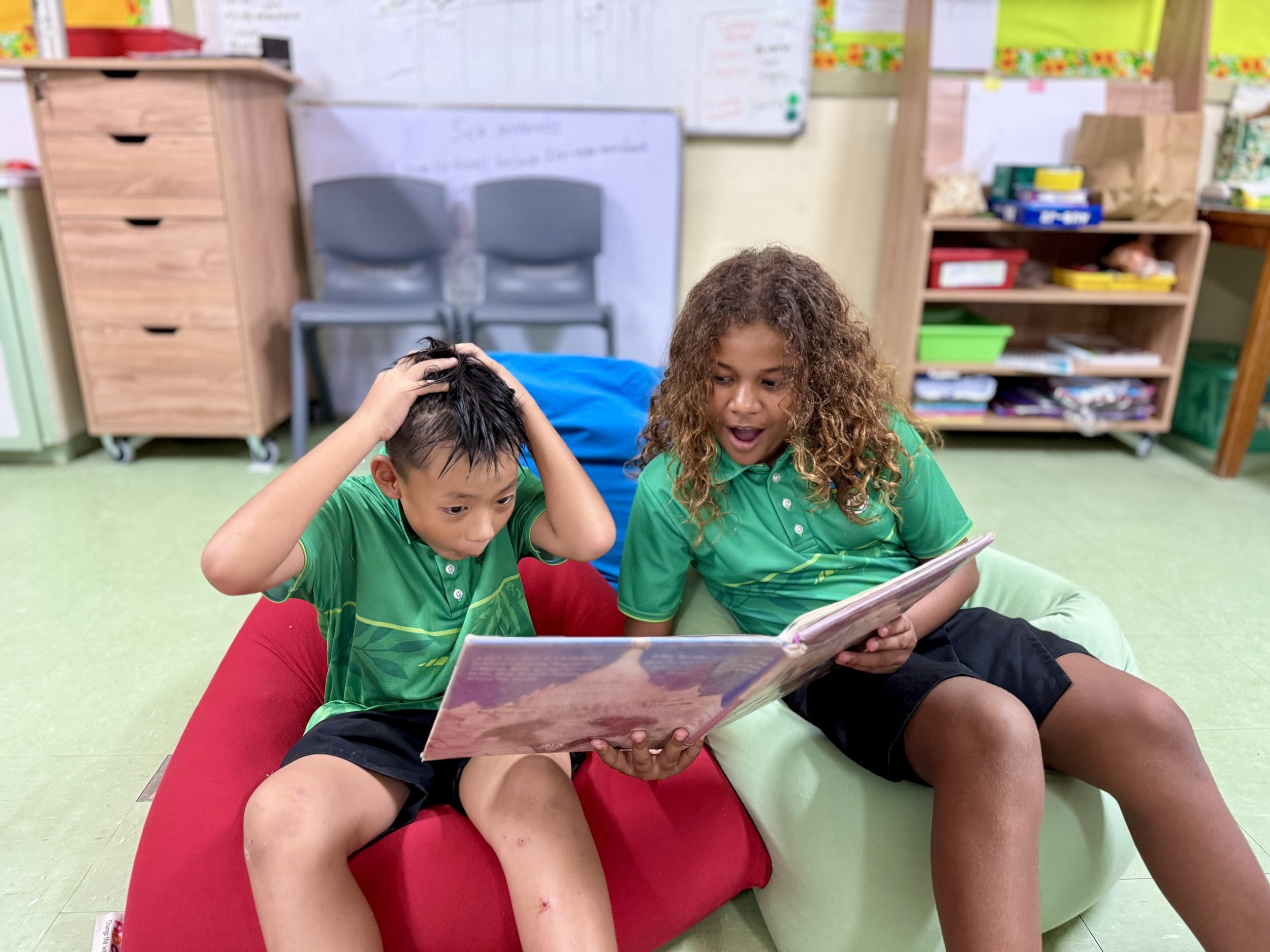
Primary Years Programme
The PYP is a designed framework for students age 3-12, the IB Primary Years Programme (PYP) provides the knowledge, concepts, skills personal attributes and the capacity to take action, all of which younger students need to equip them for successful lives, both now and in the future.
Learning through inquiry, a child’s investigations across and beyond subject areas will strengthen knowledge and understanding as they explore global, topical and relevant ‘big picture’ questions, or interdisciplinary themes.
Student-centered learning
The PYP provides an ideal foundation for children to become successful, lifelong learners by developing their:
social and emotional well-being
independence, as they take responsibility for their own learning
international mindedness
understanding of the world and their ability to function effectively within it
attitudes and dispositions for learning
ability to take mindful, appropriate and sustainable student-initiated action
language skills; all students study an additional language from at least 7 years of age.
Learning in the PYP is underpinned by six transdisciplinary themes, each selected for their relevance to the real world. Young learners explore the commonalities of human experience by investigating these themes through a program of inquiry.
Who we are
An inquiry into identity as individuals and as part of a collective through: physical, emotional, social and spiritual health and well-being; relationships and belonging; learning and growing.Where are we in place and time
An inquiry into histories and orientation in place, space and time through: periods, events and artifacts; communities, heritage, culture and environment; natural and human drivers of movement, adaptation and transformation.How we express ourselves
An inquiry into the diversity of voice, perspectives, and expression through: inspiration, imagination, creativity; personal, social, and cultural notes and practices of communication; intentions, perceptions, interpretations, and responses.How the world works
An inquiry into the understandings of the world and phenomena through: patterns, cycles, systems; diverse practices, methods, and tools; discovery, design, innovation, possibilities, and impacts.How we organize ourselves
An inquiry into systems, structures, and networks through: interactions with and between social and ecological systems; approaches to livelihoods and trade practice - intended and unintended consequences; representation, collaboration, and decision-making.Sharing the planet
An inquiry into the interdependence of human and natural worlds through: rights, responsibilities, and dignity of all; pathways to just, peaceful, and reimagined futures; nature, complexity, coexistence, and wisdom.
For more information please visit: https://ibo.org/programmes/primary-years-programme/
“Woodford International School has played a vital part in contributing to our daughter’s achievements by setting her foundation to set goals and study hard- and also providing a superb education environment and most importantly supplying her with great teachers. Therefore, Woodford has to be given credit for my daughters story, as it gave her the tools and belief to ‘stand equal’ with the rest of the world –so to speak-and do well. So thank you very much Woodford! My daughter’s story is proof that Woodford is a great school!”
— Bernadette Ombu-Maiap, Woodford Parent
We invite you to visit us…
Thank you for your interest in joining our community. Woodford International School offers an educational experience like no other—one where our students develop into adaptive learners prepared to succeed in a rapidly changing world. We invite you to visit our campus and experience our unique learning environment first hand. Please contact us at +677 30186 or communication@wis.edu.sb
